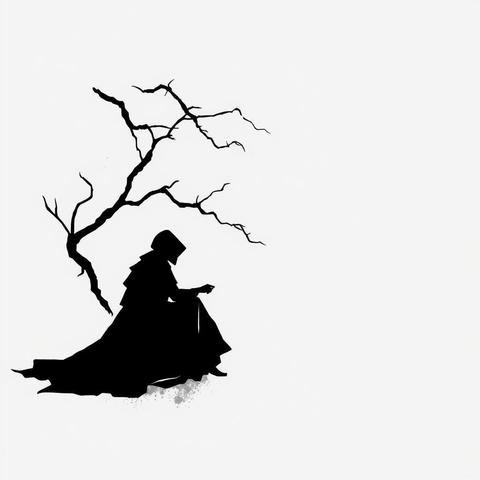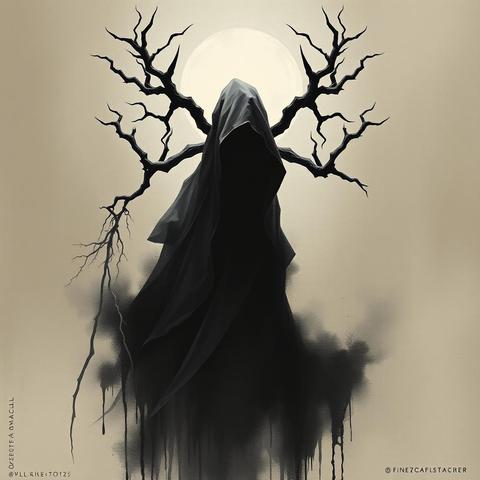I remember the first time I dreamt of shadows. I was a child, and they were long, distorted figures stretching across my bedroom wall, silent and menacing. The fear was visceral, a cold dread that clung to me even after I woke. Years later, as a certified dream expert, I understand that such dreams, while unsettling, often hold profound insights into our subconscious. Many of my clients have shared similar experiences, prompting them to seek understanding and guidance. This article delves into the world of dreams about shadows, exploring their hidden aspects, the fears they represent, and practical strategies for navigating their unsettling power.
The Symbolism of Shadows in Dreams

Dreams, as Carl Jung eloquently explained, are the language of the unconscious. Shadows, in this language, are rarely literal. Instead, they represent aspects of ourselves that we’ve suppressed, rejected, or are simply unaware of. These hidden parts of our psyche can include unresolved traumas, repressed emotions, denied desires, or even aspects of our personality that we deem unacceptable. The shadow, therefore, is not inherently “bad”; rather, it’s the unexplored, unintegrated portion of our self.
The Dark Side of the Self
Jungian psychology highlights the shadow as the totality of the unconscious, containing both positive and negative qualities. While often manifesting as fear and anxiety in dreams, the shadow can also represent untapped creativity, hidden strengths, and potent energy. A dream about shadows might, therefore, be urging you to confront and integrate these previously hidden aspects of yourself.
Fear and Anxiety: The Emotional Landscape of Shadow Dreams
The most common emotion associated with shadow dreams is fear. This fear isn’t always specific; it can be a generalized sense of unease, a feeling of being watched, or the palpable dread of the unknown. This often reflects a deep-seated anxiety about facing our inner demons or confronting uncomfortable truths about ourselves. The darkness of the shadow itself symbolizes the unknown, the aspects of ourselves we are afraid to examine.
The Hidden Meanings Behind Shadow Dreams: A Deeper Dive
The interpretation of a shadow dream depends heavily on the context. Consider the following:
-
The size and shape of the shadows: Large, looming shadows suggest overwhelming anxieties or repressed emotions. Small, fleeting shadows might represent minor insecurities or self-doubts. Distorted or grotesque shadows may point to deeply disturbing experiences that need processing.
-
The shadow’s actions: Is the shadow merely present, or is it actively pursuing you? A pursuing shadow signifies a fear that is actively influencing your waking life, potentially manifesting as avoidance behaviors or procrastination.
-
Your emotional response: How did you feel in the dream? Were you terrified, curious, or intrigued? Your emotional response offers crucial clues to the underlying message. Fear often suggests the need to confront the issue, while curiosity might indicate a readiness to explore the unknown aspects of yourself.
-
The setting of the dream: Where did the shadows appear? A familiar setting suggests the fear is related to a specific area of your life, whereas an unfamiliar setting points to a more general anxiety about the future or the unknown.
Common Variations and Themes in Shadow Dreams
Let’s explore some common variations of shadow dreams and their potential meanings:
Being chased by shadows:
This classic scenario represents the overwhelming feeling of being pursued by your fears and anxieties. The shadows are relentless, symbolizing the persistent nature of unresolved emotional issues. This might be related to past trauma, current stressors, or even a deep-seated fear of failure. The intensity of the chase often correlates with the severity of the underlying issue.
Shadows in a familiar place:
Dreaming of shadows in your childhood home, for instance, might signify unresolved emotional issues related to your upbringing or family dynamics. The familiar setting grounds the fear, making it more specific and easier to address.
Shadows with distinct features:
If the shadows take on human-like shapes or even recognizable faces, this suggests the fear is linked to a specific person or relationship in your life. Analyzing the features of the shadowy figure might reveal clues to the source of your anxiety.
The Interpretation and Deeper Message of Shadow Dreams
These dreams are not simply nightmares to be dismissed; they are invitations to introspection. The shadow in a dream often highlights areas where we need to integrate our “whole self”, embracing both light and dark. It’s a call to acknowledge and understand our fears, not to suppress them. The message often boils down to:
-
Self-acceptance: These dreams are urging you to accept all aspects of yourself, the light and the dark. There’s no need to be perfect; embracing imperfections is a crucial step toward wholeness.
-
Courage to face the unknown: The shadow is the unknown. These dreams are asking you to gather the courage to explore your fears, examine your past, and integrate your subconscious.
-
Emotional healing: The shadow often represents unresolved emotional wounds. These dreams might be your subconscious prompting you to seek professional help or engage in self-reflection.
-
Personal growth: Confronting the shadow, integrating the unconscious, is a powerful journey of self-discovery and personal growth.
Practical Advice for Dreamers
What can you do if you keep dreaming about shadows?
-
Keep a dream journal: Detailed records of your dreams are invaluable. Note not only the imagery but also your emotions and any sensory details. This provides a rich tapestry of information for analysis.
-
Reflect on your waking life: Connect the imagery and emotions in your dream to events, relationships, or feelings in your waking life. Are there patterns or recurring themes?
-
Practice mindfulness: Mindfulness meditation can help you become more aware of your inner world, including your emotions and anxieties. This increased self-awareness can provide valuable insights into your dream experiences.
-
Consider professional guidance: A certified dream analyst or therapist can provide personalized interpretations and strategies for addressing the underlying issues revealed in your dreams. At Dream Therapy Now, we offer comprehensive dream analysis and therapy to help you navigate these profound experiences.
-
Engage in creative expression: Art, writing, or music can be powerful tools for processing emotions and expressing the subconscious. Consider using these creative outlets to express the feelings and anxieties arising from your shadow dreams.
-
Explore symbolism through literature and mythology: Studying the symbolism of shadows in different cultures and spiritual traditions can enrich your understanding of your own dream experiences.
Conclusion

Dreams about shadows, while often frightening, are not harbingers of doom but rather opportunities for profound self-discovery. They’re messengers from the unconscious, beckoning us to explore the hidden aspects of ourselves, to confront our fears, and to integrate the light and the dark within. At Dream Therapy Now (https://dreamtherapynow.com/), we believe in the power of dreams to facilitate personal growth and healing. We are here to help you unlock the messages within your dreams, providing expert analysis, sleep science, and therapeutic practices to guide you on your journey of self-discovery. Remember, understanding your shadows isn’t about eliminating them, but about integrating them, making peace with the parts of yourself you may have previously rejected. Let’s embark on this journey of self-understanding together. Contact us today to begin your path towards clarity and transformation.
Dive into our blog to discover a wealth of content that will illuminate the significance of your nocturnal adventures and guide you through the labyrinth of dream symbolism. Impeccable Dream hopes this guide was helpful! If you want to see other blog posts about Abstract Symbols in Dreams, here are some that may be of interest to you.